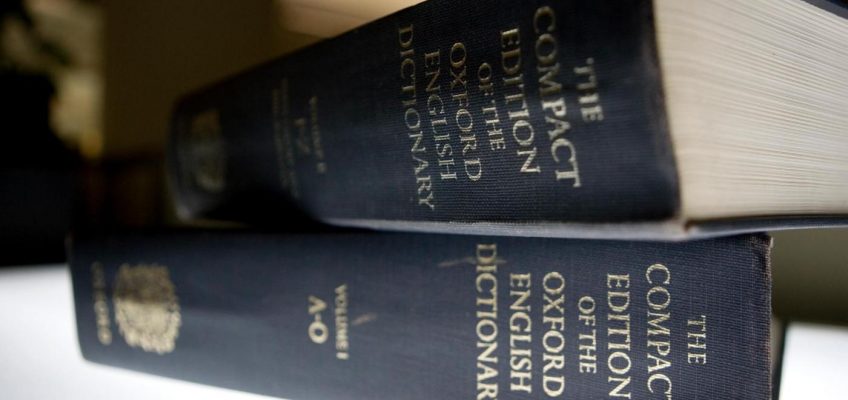Liberals are different from you and me. They have more gobbledygook.
Their pretentious vocabulary is what’s keeping progressives from connecting with everyday Americans, according to a memo prepared by a left-leaning think tank and aimed at helping Democrats regain their common touch.
Titled, “Was it Something I Said?” the memo comes from Third Way and lists 45 words Democrats should never use in communicating with “normies.” Normies, apparently, refers to everyone who is not a bat-scat left-wing lunatic.
Released exclusively to Politico, the memo scolds Democrats and their allies for using “an awful lot of words and phrases no ordinary person would ever dream of saying.” (Like “normies,” perhaps?).
That, the authors warn, makes them “sound like the extreme, divisive, elitist, and obfuscatory enforcers of wokeness.”
“To please a few, we have alienated the many — especially on culture issues, where our language sounds superior, haughty and arrogant.”
Ignoring the old adage, “If it walks like a duck and quacks like a duck, it’s a duck,” the memo contends, “most Democrats do not run on wildly out-of-touch social positions. But voters would be excused to believe we do because of the words that come out of our mouths….”
It goes on to list 45 of those words, by category, that distract from the noble work Democrats could do if they would just talk more like the guys at the neighborhood bar rather than the pompous denizens of the faculty lounge.
Starting with Therapy-Speak, the offenders: privilege, violence (as in environmental violence), dialoguing, othering, triggering, microaggression/assault/invalidation, progressive stack, centering, safe space, holding space and body shaming.
These words, the memo advises, signal, “I’m more empathetic than you, and you are callous to others’ feelings.” Nyah, Nyah, Nyah.
Next is Seminar Room Language, or in my definition, words and phrases that have audience members looking for sticks to poke in their eyes. They are: subverting norms, systems of oppression, critical theory, cultural appropriation, postmodernism, Overton Window, heuristic and existential threat to (climate, the planet, democracy, the economy.) These words say, “I’m smarter and more concerned about important issues than you.” Now, who’s ever got that impression from a liberal?
At this point, the memo pauses to explain, “When we use words people don’t understand, studies show that part of their brain that signals distrust becomes more active, undermining our ability to reach them.” That’s because their feet get the signal to run away as fast as they can.
Organizer Jargon is the next category. Put in there: racial transparency, small “d” democracy, barriers to participation, stakeholders, the unhoused, food insecurity, housing insecurity, person who immigrated. These say, “we are beholden to groups not individuals. People have no agency.” (No what?)
Gender/Orientation Correctness is the real mother when talking about how to talk to regular folk. Words to avoid are: birthing person/inseminated person, pregnant people, chest-feeding, cisgender, deadnaming, heteronormative, patriarchy and LGBTQIA.
Let’s move on to The Shifting Language of Racial Constructs grouping, which, if you mess up, the memo warns, will likely get you labeled a racist. Fortunately, it’s short: Latinx, BIPOC, allyship, intersectionality and minoritized communities.
The memo states, “As we fight racism, we should reflect on whether the words we are using are part of the reason Democrats are losing support from all non-White voter groups.” Sure, that’s the reason.
Finally, in “Explaining Away Crime,” it’s vital not to say: justice involved, carceration, incarcerated or involuntary confinement. Probably better to say, “lock them up and throw away the key” if the goal, as the memo contends, is to connect with those who “deserve to feel safe where they live, work and go to school.”
In conclusion, the memo asks Democrats to “Recognize that much of the language above is a red flag for a sizable segment of the American public.”
Memo to Third Way: It’s not the words that are the red flag. It’s the ideas they so accurately represent.
Nolan Finley writes for the Detroit News.
Related Articles
David French: It doesn’t seem wise to let Trump decide what war is
Eric Chastain: The patrol that haunts me wasn’t in Baghdad; it was in Dupont Circle
Noah Feldman: The Harvard ruling was written just for Amy Coney Barrett
Other voices: Who knew baby buggies were such a threat?
David Brooks: Why I am not a liberal




